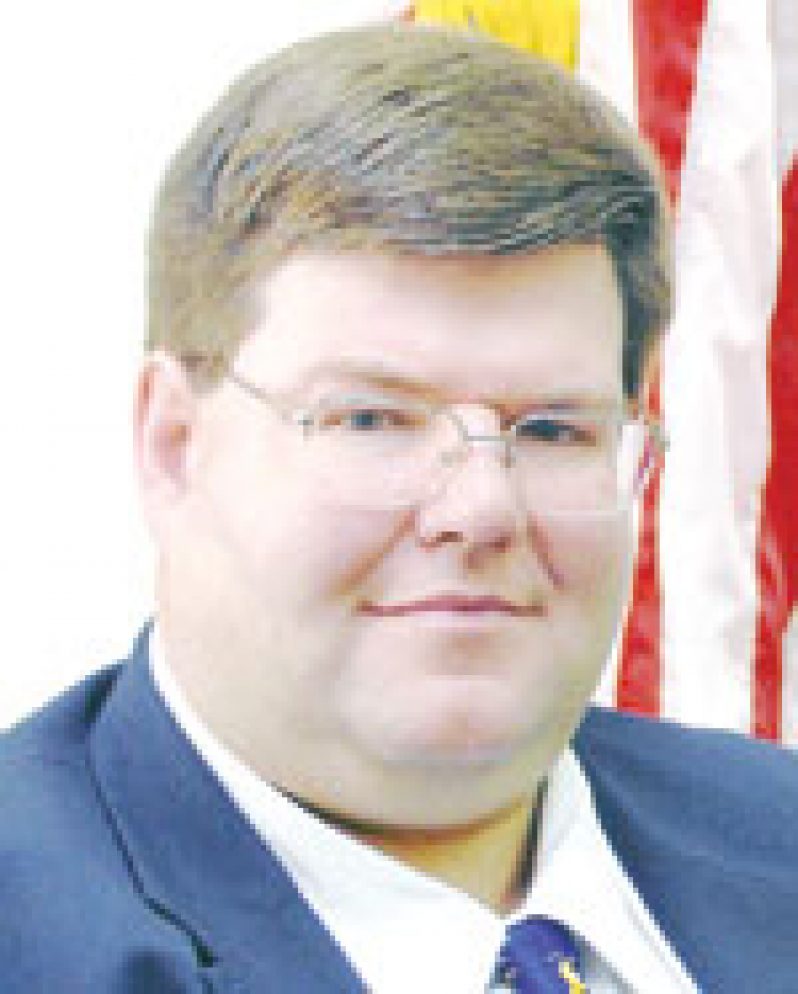DEPUTY Chief of Mission at the United States Embassy in Georgetown, Mr. Bryan Hunt, has declared the American Administration’s commitment to a “holistic” approach to countering drug trafficking.
 Hunt indicated, too, that the U.S. Government is prepared to increase its assistance to Guyana, through the Caribbean Basin Security Initiative (CBSI), to aid in countering the scourge.
Hunt indicated, too, that the U.S. Government is prepared to increase its assistance to Guyana, through the Caribbean Basin Security Initiative (CBSI), to aid in countering the scourge.
The CBSI was announced by U.S. President Barack Obama in 2009 and includes all members of the Caribbean Community (CARICOM) and The Dominican Republic.
According to Hunt, the CBSI was established partly to provide Caribbean Governments “with increased resources, training and technical assistance” to tackle illicit trafficking.
He said he was not going to suggest that the CBSI has solved all of the resource problems.
”It hasn’t. There’s a lot more that needs to be done and can be done cooperatively in the fight against drugs,” Hunt acknowledged, in an interview with the Guyana Chronicle last week.
He added: “But I think we’ve certainly heard what the Guyana Government has said, in terms of the need for resources and we’ve begun to respond through CBSI.”
Long lamented
The U. S. has long lamented that Guyana is not doing enough to tackle drug trafficking but the Guyana Government’s response has been that it simply does not have enough resources to do so.
The U.S. Government has, often, mooted the establishment of a local outpost of its Drug Enforcement Agency (DEA), which falls under its Department of Justice.
Hunt said that the Obama Administration has been very clear about providing additional resources to the Caribbean to help in the fight against what the former calls an international crime and for which it will continue to push Congress to provide additional resources.
The diplomat also sought to dismiss suggestions that the drug trade has been militarised, maintaining that the CBSI is much more than assistance to the police and includes aid to both law enforcement and social sector agencies.
As an example of the U.S. Government’s investment in the social sector, Hunt pointed to U.S. Agency for International Development (USAID) Skills and Knowledge for Youth Employment (SKYE) programme.
According to him, a recently concluded SKYE project imparted job and life skills to “a group of young people who had had relatively minor encounters with the law in the past.”
“These young people will now go on to be coached and mentored. We will help them find job placement; we will work with them over the long term,” Hunt explained, as he emphasised that the aim is to try and prevent people from being recruited by and coming into contact with various criminal organisations.
Tremendous success
The U.S. Embassy top official posited that making social investments a part of the counter-drug strategy is premised on the U.S. Government’s experience in Colombia, which is reputed to be the world’s top cocaine producer, where he said the U.S. has had “tremendous success” in curbing narcotics trafficking.
“Colombia is a very different state than it was ten years ago, largely because of the investments we (the U.S.) and the Colombian Government made there,” Hunt asserted.
As to what the U.S. Government aims to do to stem the demand for drugs within its own borders, which many observers blame for fueling the trade globally, he said there has been a plethora of interventions in that regard, going back to the Reagan Administration.
“Everyone has a different strategy, it seems, when they come into the White House, as to how exactly they should best try to curb demand in the United States,” Hunt suggested.
He continued: “They’ve tried all sorts of formulas; some have worked better than others. We are continuing to learn and evolve our counter-drugs strategy.”
Even as he said that the Obama Administration agrees more should be done to curb demand for illicit drugs in the U.S., Hunt said American agencies “are trying to target, more closely, those drugs that we see are causing the greatest damage to our society.”
Those, he said, include cocaine, heroin and designer drugs. Marijuana (cannabis) was, prominently, absent from his list of ‘damaging’ drugs.
Hunt said designer drugs, which are concocted in laboratories and taken in pill form mainly by college students, are of particular concern.
Nevertheless, he said the U.S. continues “to try to reach out, try to educate, try to penalise” in its approach to curb drug consumption.
“It is an imperfect strategy, yet it will, probably, take us decades to get it right, just like it will, probably, take decades to deal with the supply side as well,” Hunt reasoned.
However, honing in on the need for a comprehensive approach to drug trafficking, he said: “What we learn is that it’s not just about going after the narco-trafficking networks. It’s also about economic development; it’s about giving people alternatives to becoming involved in the drug trade.”
Hunt said his view is, to be effective: “We have to do all of it; we can’t just deal with law enforcement on the supply side, we can’t just deal with law enforcement on the demand side, we have to take a holistic view that includes curbing supply, curbing demand, and all of the social sector programmes both in the United States and in countries abroad in order to prevent people from falling into these networks.”



.jpg)








